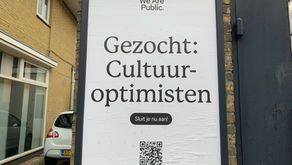Forest at the Proms
- Judith Weir
- Sep 11, 2019
- 2 min read

On a beautiful evening in South Kensington, it can be imagined how happy I was to hear my piece Forest played in the Proms by the BBC Symphony Orchestra. They also seemed happy with their chief conductor Sakari Oramo, and sitting back listening to them in the Albert Hall was a lovely experience.
Part of my relaxed aura arose from the fact this was quite an old piece (written for the CBSO and premiered in 1995 under Simon Rattle.) While I hadn’t forgotten all about it, I hadn’t heard it live for quite a few years. Listening to it anew after all this time seemed, in a good way, like an out-of-body experience; I realised the piece was by me, but I didn’t have to feel so desperately responsible for it any more. And I was able quite coolly to clock how it was working, noticing a passage with a too-concealed but important theme towards the end that definitely needs a rewrite – almost as if I was advising a colleague or a student.
Another part of the experience which struck me as absolutely key to the composer’s enjoyment is the question of what music follows your own in the concert. So often you attempt to achieve some kind of complex atmosphere at the end of your piece, only to have it immediately blasted away by a loud blast of Mahler – in fact in my experience it nearly always is Mahler. But on this Prom evening, being followed by Sibelius 5th seemed perfect; 'Forest' ends on a quietly woody kind-of-Bb7 chord and the Sibelius gently but grandly enters in the ‘right’ key of Eb major. We could even have gone straight from one to the other with no applause in between, if not for some players un-needed in the Sibelius being unfairly stranded on the platform for 35 minutes. Since personal listening on headphones is nowadays full of such segues, it’s not unreasonable to think that we could contrive and enjoy more of them in concert programmes.






